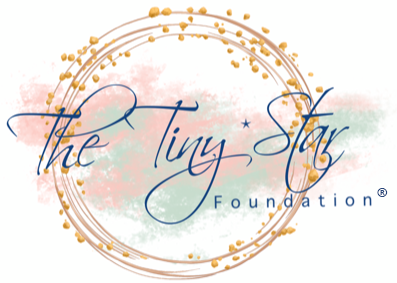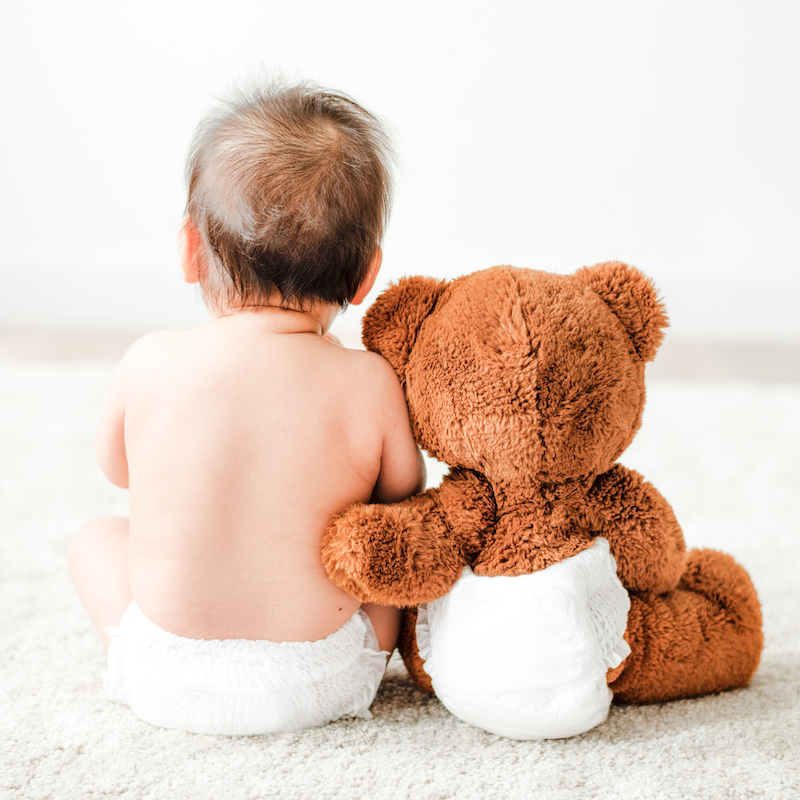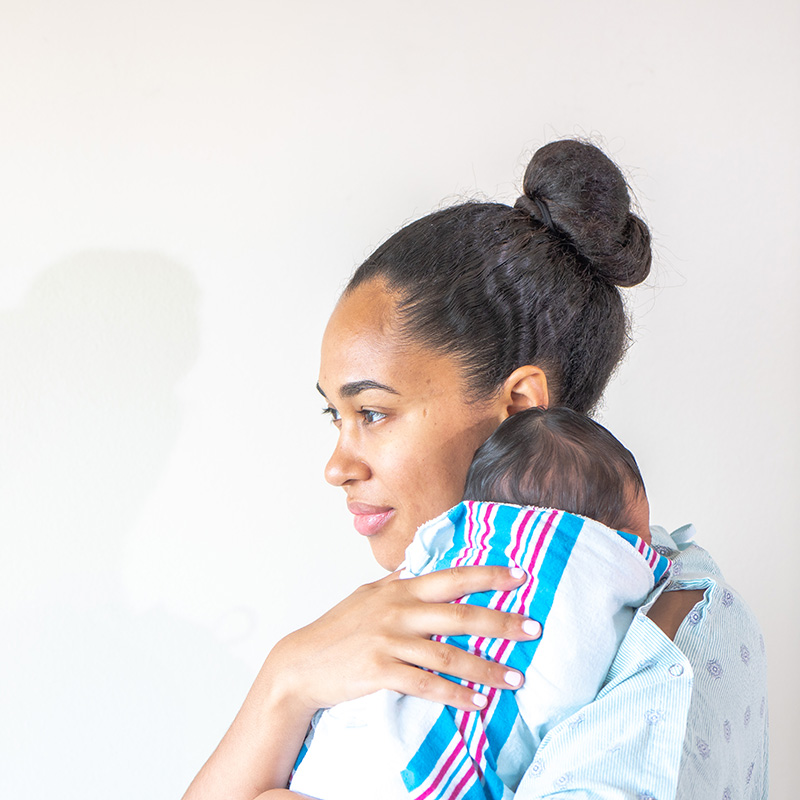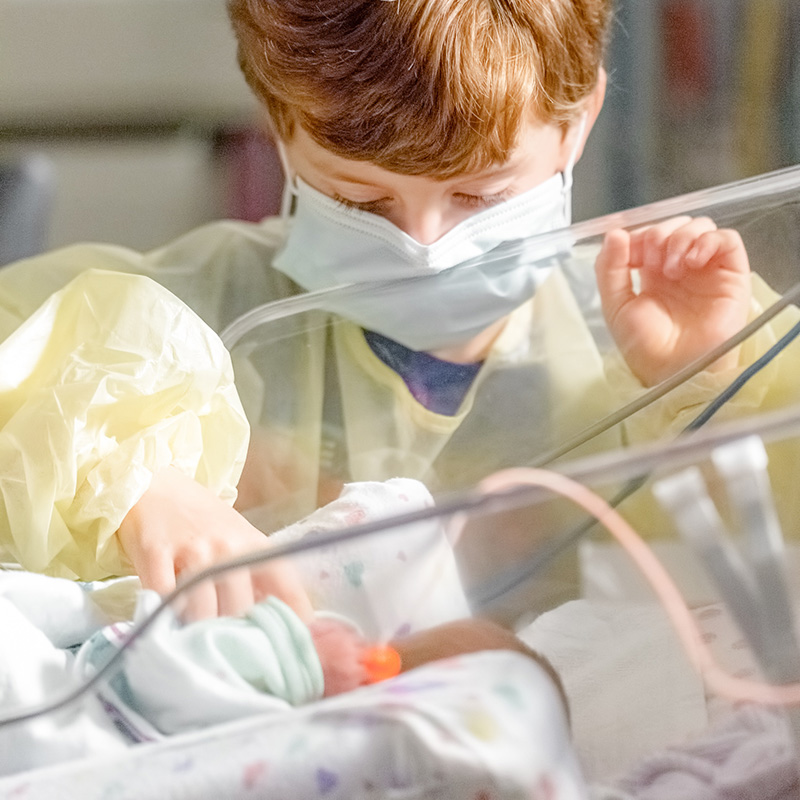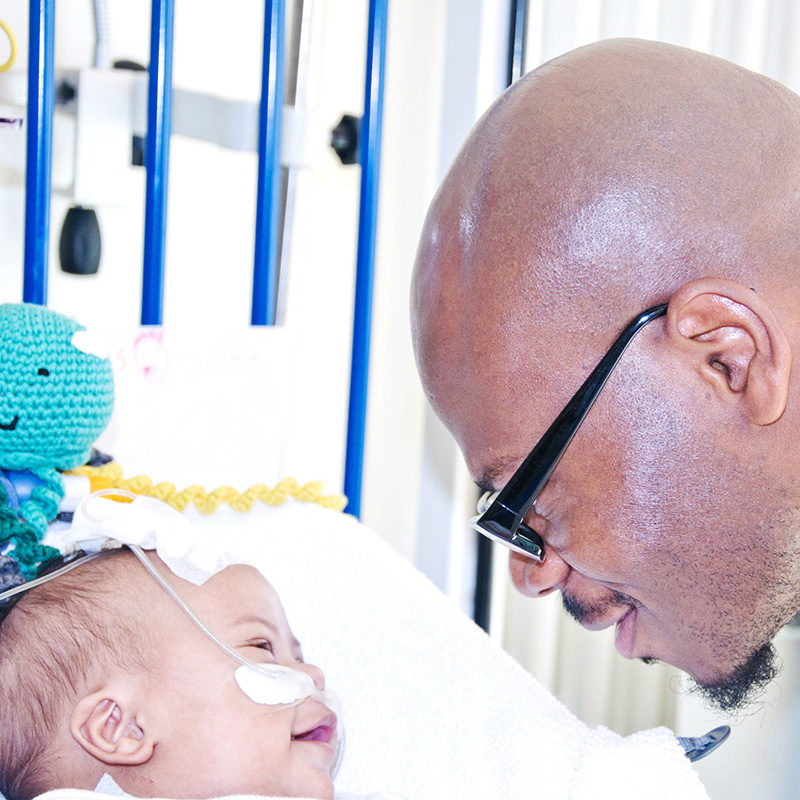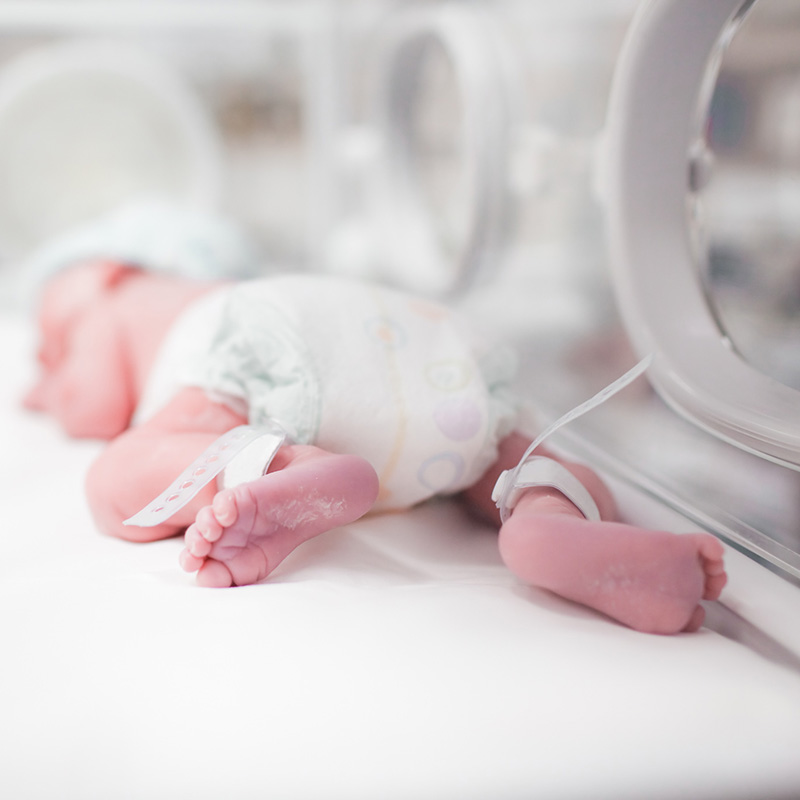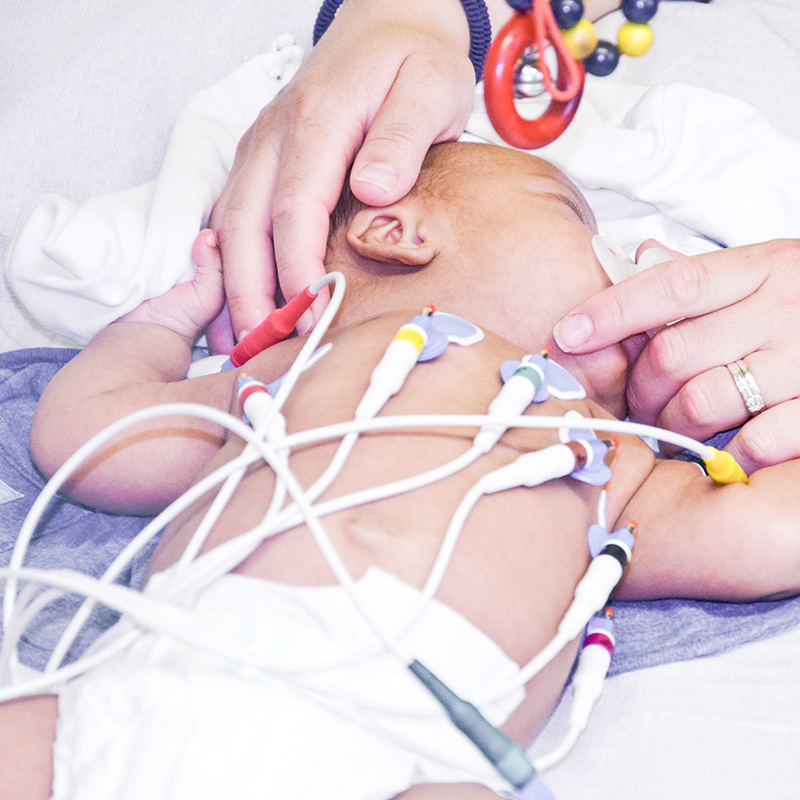Resources
DISCLAIMER:
The content for this site is for informational and educational purposes. Some content may be inappropriate for persons under 13 years of age. Some content may also be triggering for those who have experienced a related trauma. Please protect yourself. If you are feeling unsafe or are in need of immediate medical attention, please visit your local emergency room or call 911. This site is not meant to be a substitute for medical advice, intervention, diagnosis, psychological or psychiatric service, legal counsel, or financial advice. Kindly read our terms of use, disclaimer, and limitation of liability policy links at the bottom of this page.
“You are braver than you believe, stronger than you think, and loved more than you’ll ever know.”
—A.A. Milne
NICU General Information
- Conversions: Weight grams to pounds and ounces and centimeters to inches https://www.asknumbers.com/grams-to-lbs.aspx
- Neonatal Language Terms Used in the NICU. If your baby has to spend time in the NICU, you may be hearing a lot of unfamiliar terms. Learn what you need to know as you navigate the NICU. Read more at https://www.verywellfamily.com/neonatal-lingo-2748438
- How to Read the NICU Monitors https://www.verywellfamily.com/understanding-the-nicu-monitors-2748485
- NICU Bill of Rights, https://handtohold.org/wp-content/uupload/2020/12/NICU-Baby-Bill-of-RightsandDisclaimer?CL-1.pdf
- Being Your Baby’s Advocate in the NICU https://everytinything.com/blogs/nicu-blog/being-your-babys-advocate-in-the-nicu
- LaLeche League International, https://www.llli.org
- Alliance for Black NICU Families, www.blackNICUfamilies.org
- National Coalition for Infant Health www.infanthealth.org
- Infant Massage USA www.InfantMassageUSA.org
- 2020 Mom: Closing gaps in maternal mental health care www.2020Mom.org
- My NICU Family www.myNICUfamily.com
- Preemie World www.PreemieWorld.com
- Mended Little Hearts https://mendedhearts.org
- Glo Preemies www.GLOpreemies.com a three-step program for black families
- NICU Healing www.NICUHealing.com online therapeutic resource for families while in the NICU or shortly after discharge
- NICU Awareness www.NICUawareness.org
- The Essential Guide for Parents of Premature Babies www.preemiesthebook.com
- Fighting Premature Birth Campaign https://www.Marchofdimes.org/mission/
- Preemie Care: A Guide to Navigating the First Year with Your Premature Baby by Karen Lasby, R.N.
NICU Parent Information
Free Apps for your phone:
- Peekaboo ICU Preemie
- My NICU Baby by March of Dimes
- My Preemie by the Grahams Foundation
- CaringBridge www.caringbridge.org (use this tool to update family and friends by establishing your own site in an easy, accessible, private way). Post updates for your friends and family members.
- Today’s Parent, My Family app, a storybook-making tool to capture your baby’s moments.
- Hatch Baby tracks feedings, diaper changes, and sleep patterns.
Podcasts:
- NICU Now Podcast https://handtohold.org/resources/podcasts/, a podcast for families on the NICU journey.
- My NICU Family www.mynicufamily.com podcasts, videos, blog and support.
Phone Numbers:
- National Suicide Prevention Lifeline (800-273-8255)
- NJ Department of Health, Family Health Line (800-328-3838) for expectant and new moms
- NJ Department of Health, Early Intervention System Referral Line (888-653-4463)
- Mom2Mom (877-914-6662) support line for moms of special needs children
- SPAN Parent Advocacy Network (800-654-SPAN) literature, books and support for parents with special healthcare needs
- NJ Department of Human Services, NJ Children’s Relief Fund (800-335-FUND) when medical bills are too big to handle, family must reside in New Jersey a minimum of three months
- Helpline, dial 211 to inquire about all kinds of services available. https://www.211.org/
Parent Books:
- For Those Who Hold the Littlest Hands: Information and Support for Parents of Babies in the NICU by Kristi A. Dyer
- Breast Feeding Your Premature Baby by Gwen Gotsch
- Preemies: The Essential Guide for Parents of Premature Babies Second Edition by Dana Wechsler Linden, Emma Trenti Paroli, and Mia Wechsler Doron, M.D.
- Kangaroo Care: The Best You Can Do To Help Your Preterm Infant by Susan M. Ludington-Hoe, Ph.D. with Susan K. Golant
- The Preemie Parents’ Companion: The Essential Guide to Caring for Your Premature Baby in the Hospital, at Home, and Through the first Years by Susan L. Madden, M.S.; forward by William Sears, M.D.
- The Premature Baby Book: Everything You Need to Know about Your Premature Baby from Birth to Age One by James Sears, Martha Sears, Robert Sears and William Sears
- Newborn Intensive Care: What Every Parent Needs to Know edited by American Academy of Pediatrics Third Edition, edited by Jeanette Zaichkin
Websites:
- Very Well Family www.verywellfamily.com
- Who Works in the Neonatal Intensive Care Unit (NICU)? https://www.verywellfamily.com/who-works-in-the-NICU-4125500
- My Kota Bear www.MyKotaBear.com
- Support for NICU Parents, www.support4nicuparents.org
- Hand to Hold www.HandtoHold.org/NICU-family-support/request-a-peer-mentor/ Peer Mentor Program-support by a trained NICU parent, a match will be formed within three days!
- NICU Parent Network https://nicuparentnetwork.org/bill-of-rights/
- National Black Doulas Association https://www.blackdoulas.org connects black birthing and postpartum families with black doulas nationwide for emotional support
- NJ Birth Doulas www.doulamatch.net for birthing and postpartum emotional support and information (covered by Medicaid and many insurances)
- NICU Parent Network www.nicuparentnetwork.org
- Hand to Hold www.handtohold.org/nicu-family-support
- Preemies in the NICU: How Parents Help video https://www.babycenter.com/baby/premature-babies/preemies-in-the-nicu-how-parents-can-help_10302236
- Huggies Health Care https://www.huggieshealthcare.com/en-us/clinical-resources/educational-resources-and-tools/quick-guide-to-developmental-diapering-care A quick guide to developmental diapering
- Every Tiny Thing, LLC www.everytinything.com
- Project NICU www.projectnicu.com/virtual
- Grahams Foundation www.grahamsfoundation.org Free NICU Care Package and request a preemie parent monitor https://grahamsfoundation.org/care-packages/
- Every Tiny Thing blog https://everytinything.com/blogs/nicu-blog/how-to-photograph-your-preemie-in-the-nicu How-to-Photograph Your Preemie-in-the-NICU
- Project Sweet Peas www.projectsweetpeas.com
- Blooming Littles https://bloominglittles.com/
- Learn the NICU hand hug https://bloominglittles.com/one-thing-I-teach-every-NICU-parent-to-do-with-their-baby-a-hand-hug/
- Mighty Miracles Foundation https://mightymiraclesfoundation.org/NICU-videos-and-stories
- Super Savvy Sarah www.supersavvysarah.com/baby-needs-helmet infant helmets/cranial bands
- Post-Partum Stress www.postpartumstress.com
- Perinatal Health Equity Foundation www.perinatalequity.org –changing the narrative for Black Families (provides maternal support too)
- Peek A Boo ICU https://www.peekabooicu.com/developmental-care-in-the-nicu/preemie-language/your-preemies-special-language/ Your Preemies Special Language
- Peer Mentor Program-support by a trained NICU parent, a match will be formed within three days! www.HandtoHold.org/NICU-family-support/request-a-peer-mentor/
- Every Tiny Thing https://www.everytinything.com/blogs/NICU-blog/grief-and-depression-in-the-NICU-finding-the-help-you-deserve
- Chest Foundation https://foundation.chestnet.org/lung-health-a-z/respiratory-syncytial-virus-rsv/ Respiratory Syncytial Virus (RSV) by Anastassia Koumbourlis, MD, MPH
- United Healthcare Children’s Foundation www.uhccf.org Financial help with helmets
- The Cranial Center - Cranial bands/child helmets/plagiocephaly
- Cranial Band Artistry by Leigh Gibson https://www.facebook.com/pages/category/Artist/Cranial-Band-Artistry-by-Leigh-Gibson-153150921414230/
- Bling Your Band www.blingyourband.com Cranial Band Decals
- Cranial Technologies www.cranialtech.com
- Hope for HIE (Hypoxic Ischemic Encephalopathy), https://www.hopeforhie.org
- Every Tiny Thing https://everytinything.com/blogs/nicu-blog/what-everyone-needs-to-know-about-rsv-and-preemies?_pos=1&_sid=0b5373663&_ss=r
- Empowered NICU Parenting https://empowerednicuparenting.org
- My NICU Family www.mynicufamily.com podcasts, videos, blog and support
- New Jersey Early Intervention (NJEIS) Family Rights, https://spanadvocacy.org/download/new-jersey-early-intervention-system-njeis-family-rights/?wpdmdl=53303+refresh=6036303e27b331614164030
- About Perinatal Mood Disorders Signs, Symptoms and Types https://www.nj.gov/health/fhs/maternalchild/mentalhealth/about-disorders/
- Preemie Parent Alliance https://nicuparentnetwork.org/
- NJ Parent Link, a State agency-operated website that includes services for the social, developmental and emotional well being of 0-8 year olds (available in English and Spanish) https://nj.gov/njparentlink/
Books for Moms:
- Loving Myself Again: Self-Care A-Z After a NICU Stay by Leanne Rose Dorish
Bedrest Resources for Moms:
- Momas on Bedrest & Beyond https://mamasonbedrest.com
- Better Bedrest www.betterbedrest.org helpline 410-740-7662 and resource guide
- Keep ‘em Cookin’ http://www.keepemcookin.com
- 10 Activities to bond with baby while on bedrest https://handtohold.org/10-activities-for-bonding-with-your-child-during-pregnancy-bed-rest/
- Caring for your mental health on bedrest https://handtohold.org/mental-health-high-risk-pregnancy-bed-rest/
- Twelve Times Two: The Journeys of a Mother on Bedrest by Jamie Giordano
- One Recumbent Mommy: A Humorous Encounter with Bedrest by Rachel Blumenthal
- High Risk Hope https://www.highriskhope.org/wp-content/uploads/2016/12/HRH-103-Bed-Rest-Guide-PROOF-2.pdf
Resources for Dads:
- NICU Dad Discussions Podcast https://handtohold.org/resources/podcasts/nicu-dad-discussions/
- The NICU Dad, www.theNICUdad.com
- Enter the NICU: When Men Enter the NICU and Play the Quarterback Game of Their Lives by Radford M. White
- Post-Partum Dads www.postpartumdads.org
- Post-Partum Men www.postpartummen.com
Adult Bereavement - Prenatal and Perinatal Loss
“I never knew emptiness could weigh so much, she said. I can barely hold it.”
– Kai Skye
- Don’t Talk About the Baby https://www.donttalkaboutthebaby.com/ (located in Maryland)
- A beautiful online magazine for all who are grieving child loss and infertility https://stillstandingmag.com/
- Pockets of Light www.pocketsoflight.org. Pockets of Light provides virtual and in-person support (located in Montclair, NJ, Essex County)
- Hope After Loss https://www.hopeafterloss.org/
- Walk in Sunshine https://www.walkinsunshinecharity.org/ a NJ resource for parents who lost a child and provide online resources and financial assistance
- Common Ground Grief Center www.commongroundgriefcenter.org Manasquan, NJ, a center for grieving children and their families
- Stillbirth: Surviving Emotionally https://americanpregnancy.org/getting-pregnant/pregnancy-loss/stillbirth 595
- Star Legacy Foundation www.starlegacyfoundation.org (located in NY and MN), support for prenatal loss and neonatal death, especially still births
- Mother in Mind www.motherinmind.com bereavement support and doula services Northern NJ and NYC
- Nechama Comfort https://www.nechamacomfort.org/ supports families of Jewish backgrounds who suffered a pregnancy loss. Online support too (located in Teaneck, NJ).
- Now I Lay Me Down to Sleep https://www.nowilaymedowntosleep.org Based in Colorado, however, they train volunteer photographers for hospitals to provide parents with portraits after experiencing the death of their baby. There are two photographers in New Jersey.
- Connected Forever https://www.connected4ever.org
- Imagine is a center for coping with loss https://imaginenj.org/ for child grief support
- Partnership for Maternal and Child Health of Northern NJ www.partnershipmch.org
- Good Grief http://goodgrief.org/
- Stillbirth Toolkit for Providers and Parents https://www.snjpc.org/resources/stillbirthtoolkit.html a collaboration of the Southern NJ Perinatal Cooperative, Central Jersey Family Health Consortium and Partnership for Maternal and Child Health of Northern New Jersey.
- Share Pregnancy and Infant Loss Support http://nationalshare.org/online-support/ There are also local chapters throughout NJ, see https://www.facebook.com/nationalshare/ or call 636-947-6164 to find a chapter near you
- The TEARS Foundation https://thetearsfoundation.org . Angel of Hope Statue and support groups free for parents and grandparents (located in Manahawkin, NJ)
- NICU Love and Loss Podcast produced by Hand to Hold https://handtohold.org/resources/podcasts/nicu-love-and-loss/
- Remembering Our Babies www.October15th.com
- Women’s Wellness Grief Care Program http://womenswellnessnj.com/services/griefcare/
- Midwives of New Jersey https://midwivesofnj.com
- www.Miscarriagehurts.com Hope after loss, tools, tips and a memorial wall
- www.MiscarriageAssociation.org.uk in United Kingdom but check it out
- Hudson Shea Foundation https://www.thehudsonsheafoundation.com Hope after loss and grief counseling support for perinatal and neonatal loss
- In Grief Support https://www.marchofdimes.org/complications/loss-and-grief.aspx
- Pregnancy After Loss Support https://www.pregnancyafterlosssupport.org/category/online-magazine/reader-favorites/
- 13 Things You Should Know About Grief After Miscarriage or Baby Loss by Katie Kripke https://postpartumprogress.com/13-things-you-should-know-about-grief-after-miscarriage-or-baby-loss
- What to Say (or Not) to Someone Who Has a Miscarriage by Dr. Jessica Zucker https://modernloss.com/what-not-to-say-to-someone-who-has-had-a-miscarriage/
For Dads:
- Daddy’s with Angels for bereaved dads https://www.daddyswithangels.org (note: located in England and Wales for bereavement support online private), available internationally for males only
- Miscarriage Support for Men www.miscarriagesupport.org.NZ in New Zealand but visit them online
Adult Bereavement Books
- Good Grief: A Companion For Every Loss by Granger E. Westberg
- Coping with Grief, 4th ed., by Dianne and Mal McKissock
- Stuck for Words: What to Say to Someone Who is Grieving by Doris Zagdanski
- Grieving The Child I Never Knew: A Devotional for Comfort in the Loss of Your Unborn or Newly Born Child by Kathe Wunnenberg
- Life After Stillbirth: Your New 'Normal' by Sarah Smith
- To Mourn A Child: Jewish Responses to Neonatal Death and Childhood Death by Jeffrey Saks and Joel Wolowelsky
For Dads:
- Men Have Miscarriages Too by Ann Zamudio
- Noah’s Rainbow, A Father’s Emotional Journey from The Death of His Son to the Birth of His Daughter, 2nd edition, by David Fleming
- Grieving Dads: To the Brink and Back by Kelly Farley and David DiCola
- Grieving Dads https://grievingdads.com/
Children’s Bereavement Books
- When Dinosaurs Die by L.K. and M. Brown (ages 3-6)
- The Next Place by W. Hanson (ages 3-6)
- Gentle Willow by J. Mills (ages 3-6)
- The Invisible String by Patrice Karst (ages 4-8)
- Invisible Story Workbook by Patrice Karst (ages 4-8)
- Bluebird by Bob Staake
- Michael Rosen’s Sad Book by Michael Rosen
- We Were Gonna Have a Baby But We Had an Angel Instead by Pat Schwiebert
- Thumpy’s Story by Nancy Dodge
- Remembering Our Baby by Patty Keough
- Always My Twin by Valerie Samuels and Najah Clemmons
- Molly’s Rosebush by Janice Cohn
- Where's Jess? by Marvin Johnson
- Someone Came Before You by Pat Schwiebert
NICU Siblings and Preemies
- Supporting Siblings by the Miracle Babies Foundation https://www.miraclebabies.org.au/content/supporting-siblings/gjsn8g
Children’s Preemie-Related Books:
- Rosie and Tortoise by Margaret Wild (ages 4-8)
- The Moment You Were Born: A Story for You and Your Premature Baby by Sandra M. Lane, M.A. and Brenda Miles, Ph.D.
- Watching Bradley Grow by Elizabeth Murphy-Melas (ages 4-8)
- Evan Early by Rebecca Hogue Wojahn (ages 4-8)
- Prince Preemie by Jewel Kats (ages 4-8)
- My Baby Sister is a Preemie by Diana Amadeo (ages 4-8)
- That's When I'm Happy by Beth Shoshan (ages 2-6)
- Katie’s Premature Brother by Elizabeth Hawkins-Walsh (ages 9-12)
- No Bigger Than My Teddy Bear by Valerie Pankow (ages 3-7)
- The Kissing Hand by Audrey Penn (about separation during NICU visits (ages 3-7)
- Famous Preemies by A.P. Male
- Am I Still a Sister? By Alicia M. Sims
- Something Happened by Cathy Blanford
- Go Preemies! Inspirational Stories of the World's Most Famous Preemies by A. P. Male https://www.gopreemies.com
- I was a Preemie Just Like You https://www.metwobooks.com/i-was-a-preemie-just-like-you.html
- Our New Baby Needs Special Help by Gail Klayman (ages 4-8)
- Come Home Soon Baby Brother (Coloring Book) by Debi Iarussi (ages 2-6)
- Supreemie: Kylo’s Journey Through the NICU by Nico Shanel
- My Brother Needs an Operation by Anna Marie Jaworski (ages 4-8)
- What About Me?: When Brothers and Sisters Get Sick by Allan Peterkin (ages 4-8)
- My Brother is a Premie: A Children’s Guide to the NICU Experience by Abraham R. Chuzzlewit (ages 3-9)
- Waiting for Baby Joe by Pat Lowery Collins (ages 4-8)
Books for Children About Maternal Bedrest:
- Stuck In: The Pregnancy Bed Rest Picture Book for Kids and Moms by Jennifer Degl
- Mommy Has to Stay in Bed by Annette Rivlin-Gutman (ages 4-8)
- And Mommy’s On Her Side by Heidi Travis (ages 4-8)
- Bedrest Mommy by Jennifer Christensen (ages 3-8)
Grandparents and Other Loved Ones
(Both NICU and Bereavement Resources)
- The Ultimate Guide for New Preemie Grandparents https://www.verywellfamily.com/the-ultimate-guide-for-new-preemies-grandparents-2748441
- Is your grandchild in the NICU? https://handtohold.org/grandparents-help-nicu-stay/
- Grandparents-the NICU https://www.marchofdimes.org/complications/grandparents-and-the-NICU.aspx
- The TEARS Foundation www.TheTEARSFoundation.org has grandparent support groups monthly for bereaved grandparents in Wall Township, Moorestown and Old Tudor Village, NJ at the Center for Child Loss. Inquire about online groups, funeral assistance and granite grave markers for babies, see the online application.
Books:
- Forgotten Tears: A Grandmother’s Journey Through Grief by Nina Bennett
- A Grandparent’s Sorrow by Pat Schwiebert
Videos:
These NICU survivor videos may contain content that is difficult to review. Please protect yourself and view with caution.
- Micro Preemie 0 to 4 years old (2015) https://youtu.be/1H94Xwe1cS4
- Documentary by a mom of a 27-week preemie in the NICU https://www.youtube.com/watch?v=KuYnSQdcsss
- Our NICU Journey 25 weeker micro preemie, Austin and Alex McGee (five minutes) https://www.youtube.com/watch?v=j8aweb5JmOs
These are NICU bereavement videos, view with caution
- Holding Spaces video by Johns Hopkins Pediatric Palliative Care Unit https://www.hopkinsmedicine.org/johns-hopkins-childrens-center/what-we-treat/specialties/palliative-care/
- Wally Documentary by Mimi Plumber (12 minutes) https://www.youtube.com/watch?v=LDME3AdoTE0
Related Research and Professional Articles
- Carrying to Term: Preventing Premature Birth and Low-Birthweight Babies booklet by https://www.newbornhope.org/wp-content/uploads/2014/04/NBH-Carrying-to-Term-Booklet-2013.pdf
- Preterm Birth: Causes, Consequences, and Prevention https://www.nap.edu/read/11622/chapter/2
- How Discrimination, PTSD may lead to high rates of preterm birth among African-American women, https://www.washington.edu/news/2019/03/21/how-discrimination-ptsd-may-lead-to-high-rates-of-preterm-birth-among-african-american-women/
- Prematurity: An Overview and Public Health Implications, https://www.annualreviews.org/doi/full/10.1146/annurev-publhealth-090810-182459
- Bad News for the US on World Prematurity Day https://www.hrw.org/news/2020/11/17/bad-news-us-world-prematurity-day
- Types of Labor Complication: Preterm, Miscarriages and Stillbirths (video), https://study.com/academy/lesson/types-of-labor-complication-preterm-miscarriages-and-stillbirths.html
- Premature Birth Facts and Statistics: What You Need to Know https://www.verywellfamily.com/premature-birth-facts-and-statistics-2748469
- Survival of the Littlest: The Long-Term Impacts of Being Born Extremely Early https://www.nature.com/articles/d41586-020-01517-z
- NICU Babies Have Greater Risk of Mental Health Issues https://www.neurosciencenews.com/nicu-mental-health-15585/
- Recognizing the Potential Effects of Stress and Trauma on Premature Infants in the NICU: How Are Outcomes Affected? https://www.nature.com/articles/7211010
- The Good Side of Trauma, https://www.newmobility.com/2010/08/the-good-side-of-trauma/
- Premature Birth Report Card, https://www.marchofdimes.org/peristats/tools/reportcard.aspx
- Climate Change and Pregnancy: Preterm Birth https://www.hsph.harvard.edu/c-change/subtopics/climate-change-and-pregnancy-preterm-birth/
For Professionals
Special thanks to NICU Healing for this reference list of scholarly articles and books http://www.nicuhealing.com/
Attachment/Bonding:
- Coppola, G. & Cassibba, R. (2010). Mothers' social behaviours in the NICU during newborns' hospitalization: an observational approach. Journal of Reproductive and Infant Psychology, 28(2), 200-211.
- Gonzalez-Serrano, F., Lasa, A., Hernanz, M., Tapia, X., Torres, M., Castro, C., & Ibanez, B. (2012). Maternal attachment representations and the development of very low birth weight premature infants at two years of age. Infant Mental Health Journal, 33(5), 477-488.
- Hoffenkamp, H., Tooten, A., Hall, R., Croon, M., Braeken, J., Winkel, F.W., Vingerhoets, A. & van Bakel, H. (2012). The Impact of Premature Childbirth on Parental Bonding. Evolutionary Psychology, 10(3), 542-561.
- Nicolaou, M., Rosewell, R., Marlow, N., & Glazebrook, C. (2009). Mothers' experiences of interacting with their premature infants. Journal of Reproductive and Infant Psychology, 27(2), 182-194.
- Udry-Jorgensen, L., Pierrehumbert, B., Borghini, A., Habersaat, S., Forcada-Guex, M., Ansermet, F., Muller-Nix, C. (2011). Quality of attachment, perinatal risk, and mother-infant interaction in a high-risk premature sample. Infant Mental Health Journal 32(3), 305-318.
Kangaroo Care:
- Feldman, R., Eidelman, A., Sirota, L., & Weller, A. (2002). Comparison of skin-to-skin (kangaroo) and traditional care: parenting outcomes and preterm infant development. Pediatrics, 110(1), 16-26.
- Reynolds, L.C, Duncan, M.M., Smith, G.C., Mathur, A., Neil, J., Inder, T. & Pineda, R.G. (2013). Parental presence and holding in the neonatal intensive care unit and associations with early neurobehavior. Journal of Perinatology, 33(8), 636-641.
- Tallandini, M.A., & Scalembra, C. (2006). Kangaroo mother care and mother-premature infant dyadic interaction. Infant Mental Health Journal, 27(3), 251-275.
Post-Partum Depression and Anxiety:
- Gambina, I., Solderra, G., Benevento, B., Trivellato, P., Visentin, S., Cavallin, F., Trevisanuto, D. & Zanardo, V. (2011). Postpartum psychosocial distress and late preterm delivery. Journal of Reproductive and Infant Psychology, 29(5), 472-479.
- Garel, M., Dardennes, M., & Blondel, B. (2006). Mothers' psychological distress one year after very preterm childbirth. Results of the epipage qualitative study. Child: care, health and development, 33(2). 137-143.
- Goutadier, N., Lopez, A., Sejourne, N. Denis, A., & Chabrol, H. (2011). Premature birth: subjective and psychological experiences in the first weeks following childbirth, a mixed-methods study. Journal of Reproductive and Infant Psychology, 29(4), 364-373.
- Jenewein, J., Moergeli, H., Fauchere, J.-C., Bucher, H.U., Kraemer, B., Wittmann, L., Schnyder, U., & Buchi, S. (2008). Parents' mental health after the birth of an extremely preterm child: A comparison between bereaved and non-bereaved parents, Journal of Psychosomatic Obstetrics and Gynecology, 29(1), 53-60.
- Letourneau, N.L., Dennis, C.L., Benzies, K., Duffet-Leger, L., Stewart, M., Tryphonopoulos, P.D., Este, D., & Watson, W. (2012). Postpartum depression is a family affair: addressing the impact on mothers, fathers, and children. Issues in Mental Health Nursing, 33, 445-457.
- Madu, S., Roos, J. (2006). Depression among mothers with preterm infants and their stress-coping strategies. Social Behavior and Personality, 34(7), 877-890.
- Nagata, M., Nagai, Y., Sobajima, H., Ando, T., & Honjo, S. (2004). Depression in the early postpartum period and attachment to children in mothers of NICU infants. Infant and Child Development, 13, 93-100.
- O'Brien, M., Asay, J. H., & McCluskey-Fawcett, K. (1999). Family functioning and maternal depression following premature birth. Journal of Reproductive and Infant Psychology, 17(2), 175-188.
- Preyde, M. & Dingwall, T. (2009). Stress and coping in parents of medically at-risk infants: the need for social work support. Canadian Social Work, 25-40.
- Pritchard, M., Colditz, P., Cartwright, D., Gray, P., Tudehope, D. & Beller, E. (2012). Six-week postnatal depression predicts parenting stress profiles in mothers of preterm children. Journal of Reproductive and Infant Psychology, 30(3), 303-311.
Trauma and Stress:
- Bradley, R. & Slade, P. (2011). A review of mental health problems in fathers following the birth of a child, Journal of Reproductive and Infant Psychology, 29(1), 19-42.
- Bryant, R.A., Friedman, M., Spiegel, D., Ursano, R. & Strain, J. (2010). A review of acute stress disorder in DSM-5, Depression and Anxiety, 0, 1-16.
- Busse, M., Stromgren, K., Thorngate, L., & Thomas, K. (2013). Parents' responses to stress in the neonatal intensive care unit, Critical Care Nurse 33, 52-59.
- Dudek-Shriber, L. (2004). Parent stress in the neonatal intensive care unit and the influence of parent and infant characteristics. American Journal of Occupational Therapy, 58, 509-520.
- Howe, T.H., Sheu, C.F., Wang, T.N., & Hsu, Y.W. (2014). Parenting stress in families with very low birth weight preterm infants in early infancy. Research in Developmental Disabilities, http://dx.doi.org/10.1016/j.ridd.2014.02.015.
- Jotzo, M. & Poets, C. (2005). Helping parents cope with the trauma of premature birth: an evaluation of a trauma-preventive psychological intervention. Pediatrics, 115(4), 915-919.
- Kendall-Tackett, K. (2009). Traumatic stress symptoms in parents of premature infants. Trauma Psychology Newsletter, 16-18.
- Nicholls, K. & Ayers, S. (2007). Childbirth-related post-traumatic stress disorder in couples: A qualitative study, British Journal of Health Psychology, 12, 491-509.
- Pierrehumbert, B., Nicole, A., Muller-Nix, C., Forcada-Guex, M. & Ansermat, F. (2003). Parental post-traumatic reactions after premature birth: implications for sleeping and eating problems in the infant. Arch Dis Child Fetal Neonatal, 88, 400-404.
Treatment Reviews:
- Brecht, C. , Shaw, R., St. John, N., & McCue Horwitz, S. (2012). Effectiveness of therapeutic and behavioral interventions for parents of low-birth-weight premature infants: A review. Infant Mental Health Journal, 33(6), 651-665.
Post-traumatic Growth:
- Barr, P. (2011). Post-traumatic growth in parents of infants hospitalized in a neonatal intensive care unit. Journal of Loss and Trauma, 16, 117-134.
- Calhoun, L. & Tedeschi, R. (2004). The foundations of post-traumatic growth: New considerations, Psychological Inquiry, 15(1), 93-102.
- Joseph, S., Murphy, D. & Regel, S. (2012). An affective-cognitive processing model of post-traumatic growth. Clinical Psychology and Psychotherapy, 19, 316-325.
- Levine, L.J., Schmidt, S., Kang, H. & Tinti, Cl (2012). Remembering the silver lining: Reappraisal and positive bias in memory for emotion, Cognition and Emotion, 26(5), 871-884.
- Linley, P. & Joseph, S. (2011). Meaning in life and post-traumatic growth. Journal of Loss and Trauma: International Perspectives on Stress & Coping, 16(2), 150-159.
- Schuttler, D. & Boals, A. (2011). The path to post-traumatic growth versus posttraumatic stress disorder: Contributions of event centrality and coping. Journal of Loss and Trauma, 16, 180-194.
- Siegel, D. (2001). Toward an interpersonal neurobiology of the developing mind: Attachment relationships, "mindsight," and neural integration, Infant Mental Health Journal, 22(2), 67-94.
- Spielman V. & Taubman-Ben Ari, O. (2009). Parental self-efficacy and stress-related growth in the transition to parenthood: A comparison between parents of pre and full-term babies, Health & Social Work, 34(3), 201-212.
- Taubman-Ben Ari, O., Findler, L., & Kuint, J. (2010). Personal growth in the wake of stress: the case of mothers of preterm twins, The Journal of Psychology, 144(2), 185-204.
- Tedeschi, R. & Calhoun, L. (2004). Post-traumatic growth: Conceptual foundations and empirical evidence, Psychological Inquiry, 15(1), 1-18.
The following organizations provide workshops and webinars for a fee and for free, with and without CEUs, in person and online.
- Partnership for Maternal and Child Health of Northern New Jersey https://partnershipmch.org/, Providing Compassionate Support: Grief and Perinatal Loss (webinar) https://www.youtube.com/watch?v=FHn4z0F6pd4
- The Seleni Institute https://www.seleni.org
- Rutgers University. Perinatal Mental Health Certification Program was created in 2018 (PMH-C). It includes 14 hours of perinatal mood and anxiety courses, six hours of live or interactive online training, and successful completion of an exam. CEUs are required to keep certification active.
- Postpartum Support International, Portland, Oregon www.postpartum.net
Stay Connected
Are you a grandparent, a family member, or a caring friend? Are you looking to be more informed and supportive for a loved one? Let us send you updates on new resources, our quarterly newsletter and information about upcoming events.
